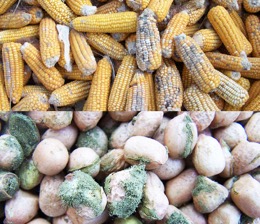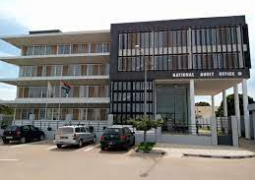
The Gambia’s groundnut price has over the years depreciated in the world market and as a result, the country’s groundnut can no longer be sold in the European markets, instead, it’s sent to China where it is confirmed to be used for animal and bird feedings.
In an interview, Minister Sabally stated that there are several factors that play role in the aflatoxin, adding that some of them are not within the control of the government or the ministry.
He explained: “Once peanuts are harvested by the farmers, even before they get to Gambia Groundnut Corporation (GGC), if the rain persists, the moisture is higher and they are likely to have aflatoxin. The place where peanuts are saved before reaching GGC also contributed to the aflatoxin.”
He said that his ministry is working on the revitalisation of its corporative societies, saying they already have a unit called agribusiness and are working to expand it into a department. Minister Sabally added that would get the country to the oldest days when our peanuts are managed in our corporate societies.
Elaborating on why the government doesn’t purchase aflasafe to prevent our groundnuts from being contaminated with aflatoxin, he said aflasafe was introduced to farmers.
“We have it in the country but we don’t have enough. Post-harvest management of the groundnut brings the greater risk of aflatoxin and our technical department is working on the mitigating factors.”
Aflatoxin contamination is caused by aspergillus flavus and closely related fungi. In The Gambia, aflatoxin contamination of groundnut and maize, two staple and economically important crops, is common. Groundnut and maize consumers are chronically exposed to aflatoxins, sometimes at alarming levels. This has severe consequences on people’s health and productivity.
Aflatoxin contamination also impedes commercialisation in local and international premium markets. In neighbouring Senegal, an aflatoxin biocontrol product containing four atoxigenic isolates of A. flavus, aflasafe SN01, has been registered and is approved for commercial use in groundnut and maize.





